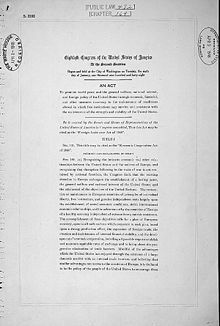“Punting the Pundits” is an Open Thread. It is a selection of editorials and opinions from around the news medium and the internet blogs. The intent is to provide a forum for your reactions and opinions, not just to the opinions presented, but to what ever you find important.
Thanks to ek hornbeck, click on the link and you can access all the past “Punting the Pundits”.
Follow us on Twitter @StarsHollowGzt
New York Times Editorial Board: The Scrambled States of Immigration
A country that has abandoned all efforts at creating a saner immigration policy has gotten the result it deserves: not one policy but lots of little ones, acting at cross purposes and nullifying one another. Not unity but cacophony, a national incoherence – one well illustrated in a recent report in The Times on the various ways the states, forsaken by Congress, are adjusting to the millions of unauthorized immigrants living outside the law. [..]
Depending on how the Fifth Circuit rules on the lawsuit challenging Mr. Obama’s executive actions, his valiant effort to repair some of the damage to the immigration system could well be undone, and everybody, families and felons, may get put back in the shadowy line of potential deportees. Meanwhile, the Army is expanding and fast-tracking a program to give citizenship to unauthorized immigrants with special language or medical skills.
Who is on the right side of this argument – the Army, Mr. Obama, Gov. Jerry Brown of California, Mr. de Blasio? Or Texas, Alabama, Arizona and the Republicans whose resistance to reform has left the nation in this mess? Those die-hard opponents fail to remember that laws and policies that deny rights and promote exclusion have been the source of shame and regret throughout American history. Integration and assimilation are the core values of a country that is in danger of forgetting itself.
Will Rogers: Our Land, Up for Grabs
A BATTLE is looming over America’s public lands.
It’s difficult to understand why, given decades of consistent, strong support from voters of both parties for protecting land, water and the thousands of jobs and billions of dollars in economic benefits these resources make possible.
Last week, the United States Senate voted 51 to 49 to support an amendment to a nonbinding budget resolution to sell or give away all federal lands other than the national parks and monuments.
If the measure is ever implemented, hundreds of millions of acres of national forests, rangelands, wildlife refuges, wilderness areas and historic sites will revert to the states or local governments or be auctioned off. These lands constitute much of what’s left of the nation’s natural and historical heritage. [..]
Rather than selling off the lands we all own, or looking for other uses for the money approved at the ballot box for conservation, our leaders should listen to voters and find ways to protect more of the places that make America special.
David Cay Johnston:
Phantom income helps poor children
Reform the earned income tax credit but not at the expense of struggling families
The number of informal businesses in the United States is growing robustly, but the average size of these enterprises is shrinking fast, my analysis of official government data from 1988 to 2012 shows.
Given the millions of people who have lost a job, cannot find work or kept working but at reduced pay, it’s not surprising that many of them are starting small businesses to make ends meet. If you cannot get a job, make one for yourself – sell homemade goods, wash windows, edit articles.
The trends in what government calls sole proprietorships – any unincorporated business that files a Schedule C with the owner’s personal tax return – open a window on how Americans are adapting to an economy that for decades has been glorious for those at the top but hard on the vast majority.
This is a story not of prosperous entrepreneurship but of desperate struggles to swim against powerful economic currents. A much darker story lies hidden in the official numbers, a story of crushing poverty alleviated by a strange amalgam of thieving tax preparers, ignorant parents and Congress’ failure to focus on making government policies work as intended.
In analyzing the official data, I saw hints that many of these informal businesses either are bogus or inflate their profits. It may appear bizarre that anyone would tell the Internal Revenue Service that they made more money than they actually did. But doing so can be lucrative for unscrupulous tax preparers and their poorest clients.
Charles M. Blow: Religious Freedom vs. Individual Equality
Indiana’s governor is now vowing to “clarify” a religious freedom law he recently signed in that state, because of what he calls a “perception problem” about whether the legislation would allow open discrimination against people whose sexual identities defy the heteronormative construct.
In truth, there is no perception problem. There was a detection problem: People detected precisely what the bill was designed to do, and they objected. And, possibly more important than individuals’ objections, were the objections of big business like Apple and Angie’s List.
Rather than simply protecting the free exercise of religion, the bill provides the possibility that religion could be used as a basis of discrimination against some customers. [..]
Too many people in this country continue to have an unhealthy obsession with what other people do in their bedrooms rather than focusing on what they do – or don’t do – in their own.
Mind your own faith and your own business and allow other people to define their own relationships with a god, if he or she believes and chooses such a spiritual communion.
Michelangelo Signorile: A Spellbinding Week: What Are the Gains and Losses for LGBT Rights, and What Battles Lie Ahead?
It’s been an extraordinary week for LGBT people in America, as we saw a battle play out in the media that made all of us who support equality — lesbian, transgender, gay, bisexual, and straight — feel proud. Major celebrities, media personalities, prominent politicians, and huge corporations — even some on Fox News — were standing up against bigots and speaking out for equality. It was exciting, even dazzling. [..]
Yeah, we won a major media battle and got amazing support. We should thank people like lesbian longtime journalist Kerry Eleveld and others for lighting a firecracker under HRC with much-needed, intense criticism in recent weeks for its lack of a strategy. It was wonderful, too, to see allies support us, exciting to behold. And hopefully we learned a lot about holding our enemies’ — and gay groups’ — feet to the fire. But in larger frame, LGBT citizens lost protection from discrimination. So, yes, be proud of our work this week. But there’s so much more to do. Don’t think our opponents aren’t already regrouping and calibrating their next attack, moving on to other states. We cannot fool ourselves, dazzled by the events, into thinking that because we won a media battle, we have won the war.
Jessica Valenti: It isn’t justice for Purvi Patel to serve 20 years in prison for an abortion
Abortion is illegal in the United States. So is having a stillbirth – not officially, perhaps, but thanks to a case in Indiana, we’re halfway there. On Monday, Purvi Patel, a 33 year old woman who says that she had a miscarriage, was sentenced to 20 years in prison for neglect of a dependent and feticide. She is the first woman in the United States to ever be sentenced for such a crime. [..]
We may never know what really happened in Patel’s case. She has repeatedly said that she had a miscarriage which, if true, means that the state is sending a woman to jail for not having a healthy pregnancy outcome. But even if Patel did procure and take drugs to end her pregnancy, are we really prepared to send women to jail for decades if they have abortions? Even illegal ones?
When women are desperate to end their pregnancies, they will. The answer to this shouldn’t be punitive, but supportive: women need better access to education, affordable contraception and abortion without harassment or delay.
Patel’s case opens the door for any woman who expresses doubt about her pregnancy to be charged if she miscarries or has a stillbirth. It’s a terrifying thought, but one that is already impacting real women: the anti-choice movement is now sending women to jail for what happens during their pregnancies. So tell me again how abortion is totally legal. Or tell Purvi Patel.

 Welcome to the Stars Hollow Gazette‘s
Welcome to the Stars Hollow Gazette‘s 


 On this day in 1948,
On this day in 1948, 
 On this day in 1513, Ponce de Leon discovers Florida. Near present-day St. Augustine, Spanish explorer
On this day in 1513, Ponce de Leon discovers Florida. Near present-day St. Augustine, Spanish explorer
Recent Comments